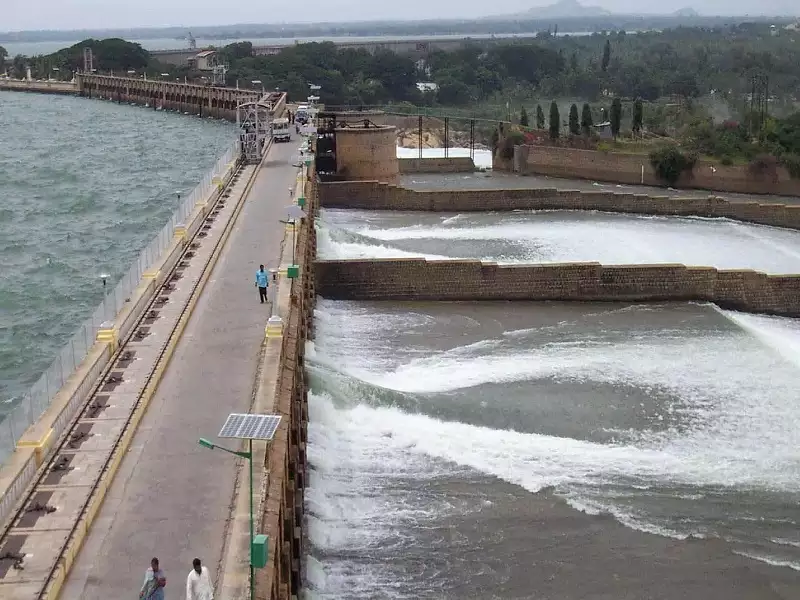Introduction:
A long dispute involving the Indian states of Tamil Nadu and Karnataka, in addition to Puducherry and Kerala, is known as the Cauvery Water Dispute. The sharing of the waters of the Cauvery River is at the centre of this conflict, which has significant implications for interstate relations and water management.
Historical Context:
- 19th Century Agreements: In the 19th century, agreements were made between the Madras Presidency and the princely state of Mysore regarding water usage. According to these agreements, the upper riparian state (Mysore) needed the lower riparian state’s (Madras) consent for any construction, such as reservoirs, on the Cauvery River.
- Modern Phase: The dispute entered a modern phase in 1974 when Karnataka began diverting Cauvery water without Tamil Nadu’s consent. This triggered tensions and led to the establishment of the Cauvery Water Disputes Tribunal (CWDT) in 1990.
Key Events and Resolutions:
Cauvery Water Disputes Tribunal (CWDT):
- The CWDT was set up to address the water-sharing conflict.
- In 2007, the CWDT issued its final award, specifying water allocations among the four states:
- Tamil Nadu: ~404 TMC (thousand million cubic feet)
- Karnataka: ~284 TMC
- Kerala: 30 TMC
- Puducherry: 7 TMC
Supreme Court’s Verdict:
- In 2018, the Supreme Court upheld the CWDT’s award, declaring the Cauvery a national asset.
- The court ordered the establishment of the Cauvery Water Management Scheme, which includes the Cauvery Water Management Authority and the Cauvery Water Regulation Committee.
- Current Water Sharing Mechanism
- Water sharing in the Cauvery River is regulated by a monthly schedule between Karnataka and Tamil Nadu.
- In a typical year, Karnataka must release about 177 TMC of water to Tamil Nadu from June to May, including approximately 123 TMC during the monsoon months (June to September).
- Disputes often arise during the southwest monsoon season when rainfall falls below expectations.
Recent Issues:
Tamil Nadu’s Demands:
- Tamil Nadu approached the Supreme Court to ensure the release of 24,000 cusecs of water from Karnataka’s reservoir.
- Karnataka had previously refused agreed-upon water release quantities.
Mekedatu Dam Project:
- Tamil Nadu argues that the project is unauthorized and could harm its interests, violating the orders of the CWDT and the Supreme Court.
- Karnataka advocates for 8,000 cusecs of water release for a 15-day period, citing poor inflow due to reduced rainfall in the Cauvery catchment.

